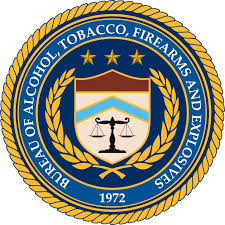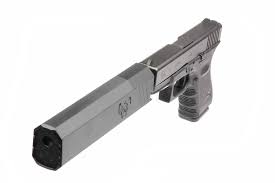Arsenal Attorney’s clients could soon expect to receive faster approval of NFA applications. According to BATFE, sometime after December 15 but before Christmas, the eForm system will expand to accept ATF Forms 1, 2, 3, 4, 5, 6, and 9. In this blog we have presented background to these developments as well as next steps our clients could take to benefit from these developments.
For background, firearms regulated under the National Firearms Act (NFA), include silencers/suppressors, short barrel rifles, short barrel shotguns, and full auto. NFA regulations are administered by BATFE, who issue tax stamps to approved applications to register NFA firearms following payment of the applicable tax.
Previously most applications to register NFA firearms have been submitted in hard copy followed by a wait of 6-9 months. During the Obama presidency, it was common for NFA applicants to wait as long as 18 months for a tax stamp. During this same period, ATF launched eForms, but it was limited to a few categories, such as ATF Form 5320.1, the ‘Application to Make and Register an NFA Firearm’ (Form 1). Typically, Arsenal Attorneys’ clients submitting Form 1’s electronically through eForms have received a tax stamp in just a few weeks. The most common Form 1 concerned building short barrel rifles (SBR). The new eForms system will accept Form 4 (ATF Form 5320.4), which is used to transfer an NFA firearm. The most common example of such an NFA transfer is the retail purchase of a silencer.
It may come as a surprise that eForms will expand to benefit NFA applicants during the Biden presidency. In fact, funding for eForms was previously budgeted due to the long-term efforts of firearms industry leaders, particularly Silencer Shop. In fact, Silencer Shop has maintained a close working relationship with ATF’s NFA Division to upgrade technology and improve efficiency. For example, in 2017 ATF adopted Silencer Shop’s proposal to bar code all the data in a Form 4. By scanning that code attached to the first page of an NFA transfer application, ATF staff avoided the need to manually input all that information. The combination of bar coding and the use of eForms for Form 1 greatly reduced the processing times for NFA tax stamps.
What if you have an NFA application pending with ATF?
Before cancelling NFA applications awaiting ATF approval, consider this guidance from the American Suppressor Association:
If you recently submitted an NFA application, keep it in the queue. We cannot stress this enough. Withdrawing your Form 4 and re-submitting electronically will take longer than allowing your Form 4 to make its way through the approval process. That’s because ATF isn’t going to dig through the tens of thousands of forms being processed to find your application. They’re going to wait until your Form 4 reaches an NFA examiners desk – the exact point at which it would normally be approved – to process your withdrawal. Instead of approving it though, they will acknowledge your withdrawal and release your serial number. You will not be able to re-submit an eForm 4 with the same serial number until ATF acknowledges your withdrawal and puts it back into your dealer’s inventory. Thus, withdrawing and re-submitting electronically will add months to your overall application process.
How can you take advantage of eForms?
NFA applicants could pursue a mixed strategy of buy now but wait and see. Once the new eForm system goes live, it is expected it will need 24-48 hours to become fully operational. Of course, Murphy’s law could apply to any launch of a government website. Recall the disastrous launch of the Obamacare website. Thus, it might be wise to wait and see when the new eForms is fully functional.
Nevertheless, this breaking news has sparked another spike in demand for NFA firearms, which could reduce inventories and increase prices. Remember, you can purchase an NFA firearm now, but delay the application until eForms is available. If eForms proves faulty and unreliable, then a traditional paper application could be a better option. That said, we encourage you to plan your next steps in cooperation with your FFL. Circumstances like the eForm launch highlight the importance of dealing with a reputable FFL who will provide good customer service and manage your NFA application through the ATF process.
Finally, we recommend use of a trust for any NFA application to avoid the danger of unlawful possession by those who have access to an NFA firearm. Also, an effectively designed trust, like Arsenal Attorneys’ proprietary Arsenal Gun Trust, can be a firearms-specific estate plan for an entire gun collection. We help clients ensure their firearms are distributed safely, lawfully, and privately. If you are an existing client, or if you have a trust obtained elsewhere, contact us to update your documents before submitting a new NFA application. Remember, if you have a poorly designed trust or a trust pre-dating the 2016 changes to the NFA regulations, you can update your existing trust by means of a 'restatement'. Contact us to learn more.
Arsenal Attorneys is a nationwide law firm headquartered in Fairfax, Virginia near metropolitan Washington, DC. The firm serves clients in over 30 states in estate planning, criminal defense, civil litigation, business law, landlord-tenant disputes, real estate, firearms law, restoration of rights, carry permits, and the firm’s proprietary Arsenal Gun Trust. Matthew Bergstrom is the firm’s Managing Attorney, and he is licensed in California, Michigan, Nevada, Virginia, and the District of Columbia.
This blog is intended for informational purposes only and is not intended as legal advice.

 ATF provided an explanation of the common errors made on its "
ATF provided an explanation of the common errors made on its " Arsenal Attorneys and our Arsenal Gun Trust services will be featured in an upcoming online seminar on August 20 for lawyers concerning estate planning for firearms entitled, "
Arsenal Attorneys and our Arsenal Gun Trust services will be featured in an upcoming online seminar on August 20 for lawyers concerning estate planning for firearms entitled, " This is the latest in a series of blogs summarizing state laws concerning firearms regulated under the National Firearms Act (“NFA”). It is not intended to be a comprehensive explanation of the law, nor is it intended as legal advice. You should always consult an attorney to determine how the law applies to particular circumstances. In this installment, we review Virginia law on silencers. Follow us to learn how various states regulate silencers and other NFA firearms, such as short barrel rifles and machine guns.
This is the latest in a series of blogs summarizing state laws concerning firearms regulated under the National Firearms Act (“NFA”). It is not intended to be a comprehensive explanation of the law, nor is it intended as legal advice. You should always consult an attorney to determine how the law applies to particular circumstances. In this installment, we review Virginia law on silencers. Follow us to learn how various states regulate silencers and other NFA firearms, such as short barrel rifles and machine guns. Arsenal Attorneys serve clients in the area of firearms law. The firm serves clients across America from its headquarters in the metro-Washington, DC area. The firm is particularly renowned for its Arsenal Gun Trust, a solution helping clients in the registering, handling, and estate planning of firearms, particularly those regulated under the National Firearms Act. Arsenal Attorneys' team includes lawyers licensed to practice law in nearly every state where NFA firearms are lawful to possess.
Arsenal Attorneys serve clients in the area of firearms law. The firm serves clients across America from its headquarters in the metro-Washington, DC area. The firm is particularly renowned for its Arsenal Gun Trust, a solution helping clients in the registering, handling, and estate planning of firearms, particularly those regulated under the National Firearms Act. Arsenal Attorneys' team includes lawyers licensed to practice law in nearly every state where NFA firearms are lawful to possess.